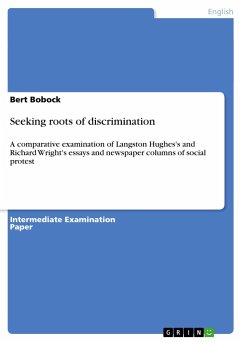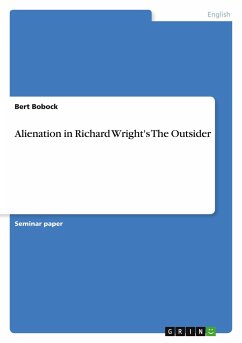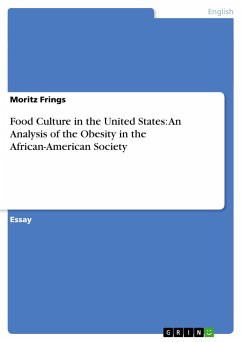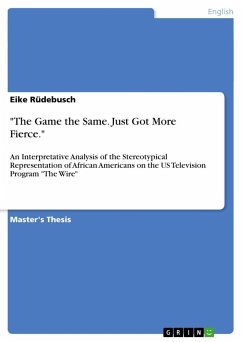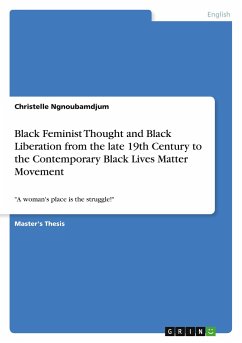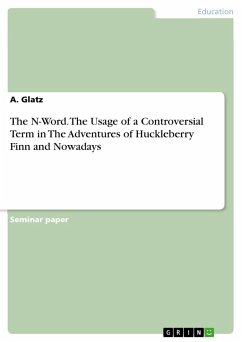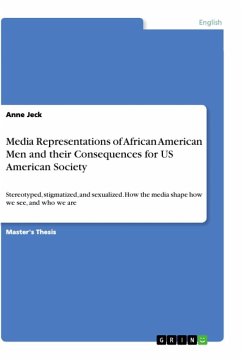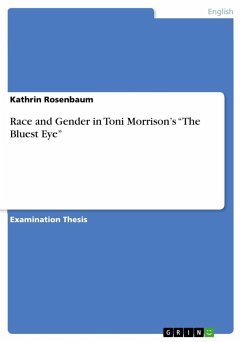Intermediate Examination Paper from the year 2002 in the subject American Studies - Culture and Applied Geography, grade: 1,7, Humboldt-University of Berlin (Department of English and American Studies), course: Introduction to US Cultural Science II: "The Thirties", language: English, abstract: Although much of Langston Hughes's and Richard Wright's writing expressed social protest, there is one genre -the essay- that has gone largely unnoticed.In the eyes of Hughes and Wright, custom, tradition and religion may be seen as some of the root causes of racism because they are largely interiorized, but they by far cannot serve alone as satisfying explanations for it. Important in the creation of racism is e.g. the negative projection of colored people in the media. Consequently, this forms a fatal preconception of blacks that is constantly being reproduced. Langston Hughes and Richard Wright, among the most prolific of American writers,gained international attention and acclaim in nearly every genre of writing, includingpoetry, the short story, the novel, drama, the libretto, the autobiography, journalisticprose, children's and adolescent literature and song lyrics. Although much of theirwriting, often expressing social protest, was easily accessible to scholars and generalreaders, there is one genre -the essay- that has gone largely unnoticed. Yet suchessays and short, non-fiction passages contribute significantly to Hughes's andWright's work, striving for racial equality on a local level, a national, as well as globallevels.At first glance, it may appear fruitless to compare the non-fiction works ofHughes and Wright, since the writers became famous for their poetry and fictionalmasterpieces. Also, a comparison between Wright's rather epic artistic style andHughes's dense, often ironic prose may seem unlikely and difficult. Yet, on closerinspection, you will find that both writers are surprisingly close to one another in theirway of thinking, and their conclusions often overlap.Hughes was a columnist for the famous African-American newspaper, the"Chicago Defender," where he commented on contemporary issues and chronicledthe hopes and despairs of his people. In spite of the different origins of the writers,Hughes and Wright were confronted early on with race discrimination andsegregation, publicly know as "Jim Crow-ism1," which was identified and condemnedin their essays.
Hinweis: Dieser Artikel kann nur an eine deutsche Lieferadresse ausgeliefert werden.
Hinweis: Dieser Artikel kann nur an eine deutsche Lieferadresse ausgeliefert werden.

